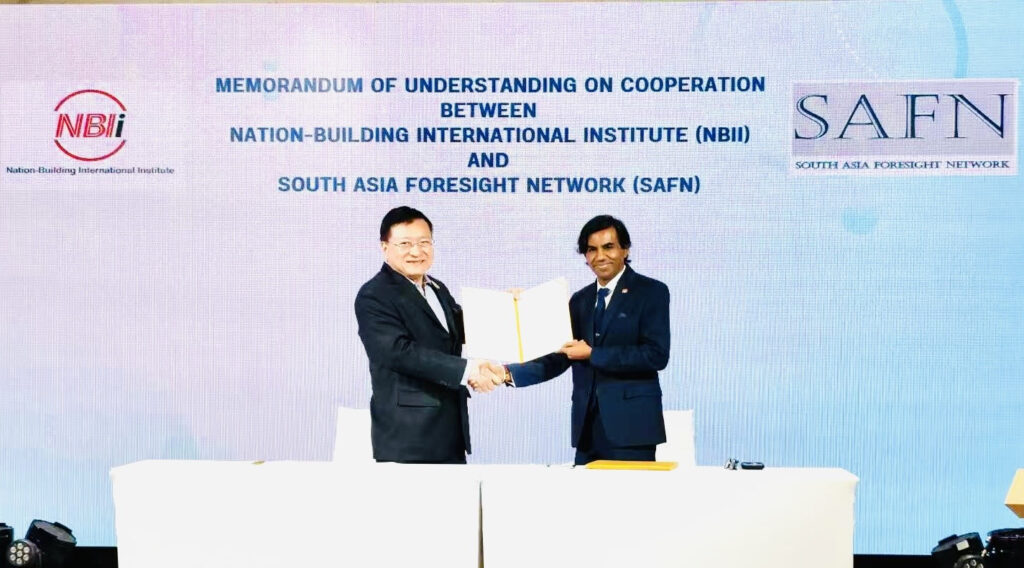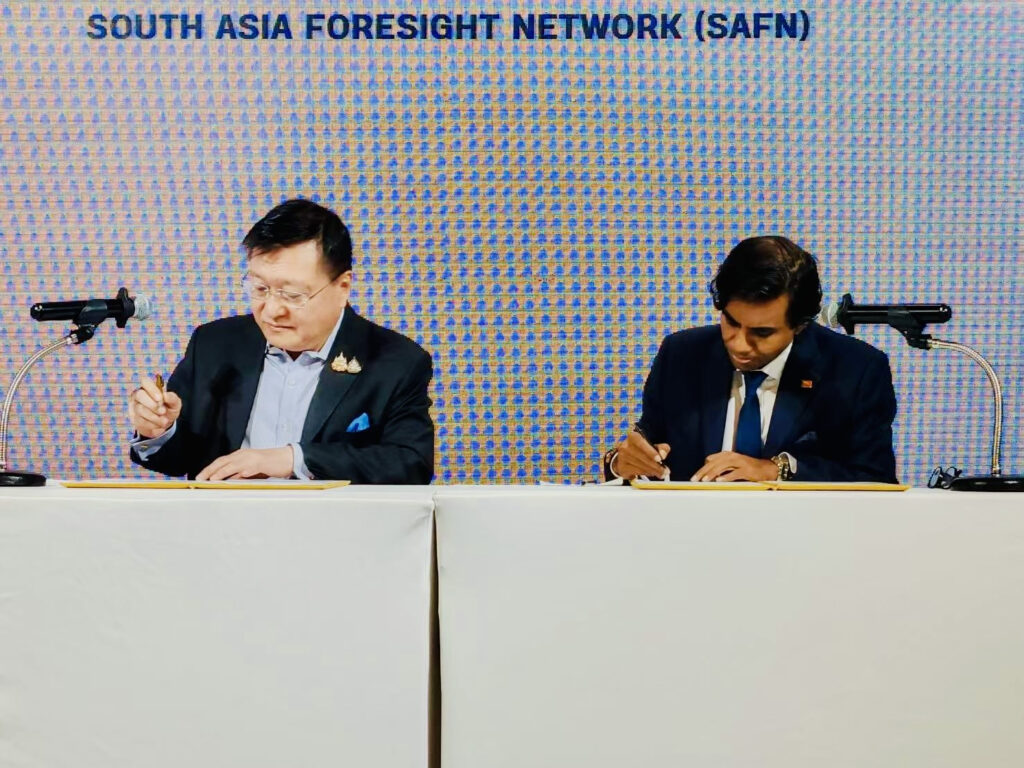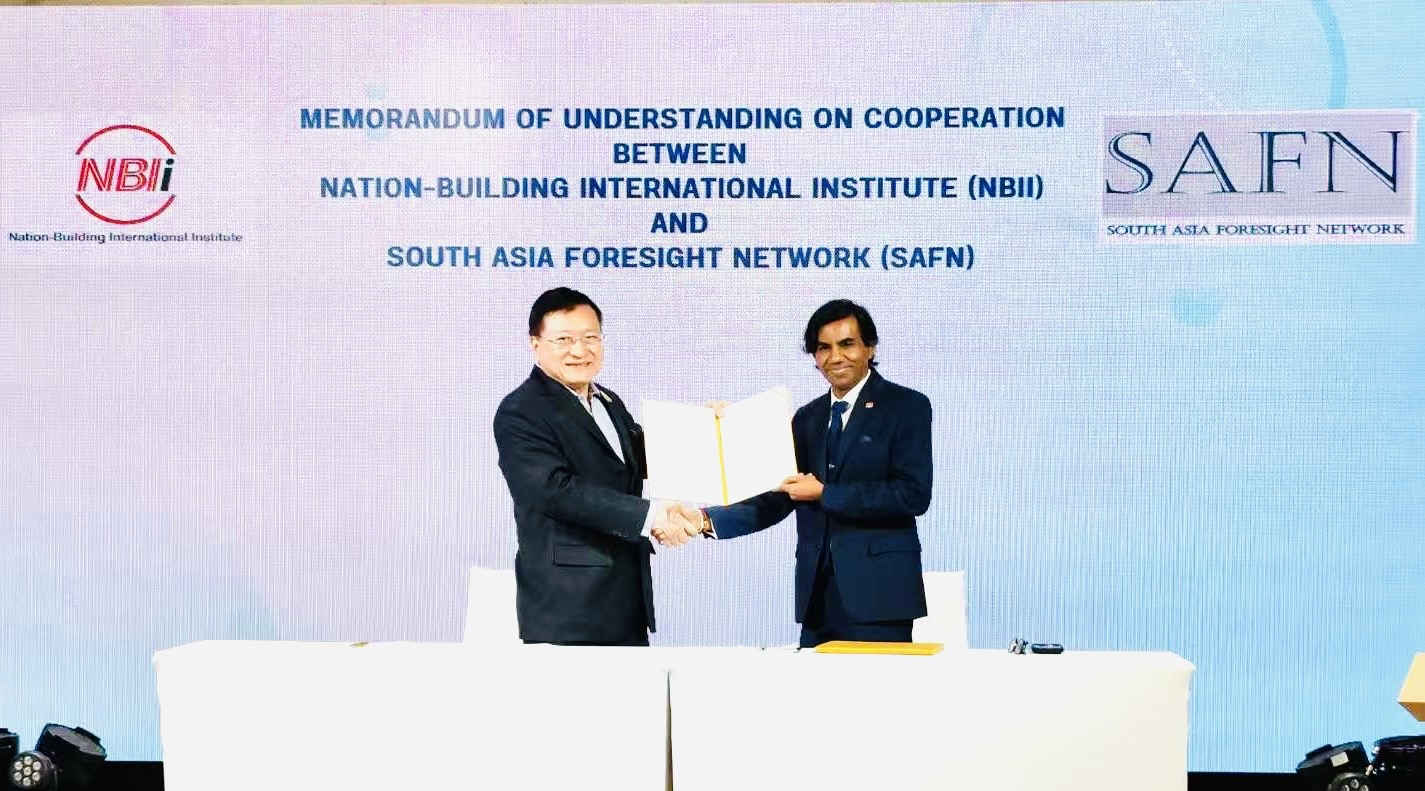
Bangkok, Thailand (February 10th, 2025) – The South Asia Foresight Network (SAFN), based in Washington, DC, and the Nation-Building International Institute (NBII) in Thailand have entered into a historic Memorandum of Understanding (MOU) to foster research collaboration and academic exchange on 7thFebruary 2025 in Thailand. This landmark partnership will drive joint research initiatives across Thailand and Southeast Asia, with SAFN focusing on foreign policy, security, and futures research in the region.
“Thailand, as ASEAN’s second-largest economy, stands at a crucial geopolitical crossroads. This partnership will create new opportunities to develop high-impact research that strengthens regional cooperation between South and Southeast Asia.”
Speaking on the significance of this collaboration, Prof. Kriengsak Chareonwongsak, Chairman of NBII, stated: “Thailand, as ASEAN’s second-largest economy, stands at a crucial geopolitical crossroads. This partnership will create new opportunities to develop high-impact research that strengthens regional cooperation between South and Southeast Asia.” The agreement comes at a pivotal moment, as the region faces rising geopolitical competition among major powers. The collaboration will provide a platform for scholars, policymakers, and researchers to engage in cutting-edge studies on economic development, security and foreign policy dynamics, contributing to informed decision-making in the region.
“Thailand’s civilizational ties, rooted in its rich Buddhist heritage, naturally connect it with nations such as Sri Lanka. This MOU opens new pathways for researchers to foster synergies between South Asia and Southeast Asia, deepening regional cooperation.”

Asanga Abeyagoonasekera, Executive Director of SAFN, underscored Thailand’s evolving diplomatic role, referencing Prime Minister Paetongtarn Shinawatra’s ongoing visit to China as an example of pragmatic foreign policy. He noted similarities with Sri Lankan President Anura Kumara Dissanayake’s recent engagement in China, emphasizing Thailand’s growing importance in shaping regional diplomacy. “Thailand’s civilizational ties, rooted in its rich Buddhist heritage, naturally connect it with nations such as Sri Lanka. This MOU opens new pathways for researchers to foster synergies between South Asia and Southeast Asia, deepening regional cooperation.”
During the signing ceremony, Asanga Abeyagoonasekera was honored for his contributions to geopolitics and international relations. He was appointed as a Fellow at NBII and an Expert Committee Member of the International Relations Institute (IRI) in Thailand. Additionally, he was invited to serve on the Editorial Board of several prestigious academic journals, including: Journal of Social Science Research and Innovation (SSRI); Journal of Future Studies for Development (JFSD); Journal of Nation-Building Research (JNBR)
This collaboration marks a new chapter in regional research excellence, strengthening policy engagement and fostering deeper academic exchange between South Asia and Southeast Asia.
For more information, please visit www.southasiaforesight.org.



